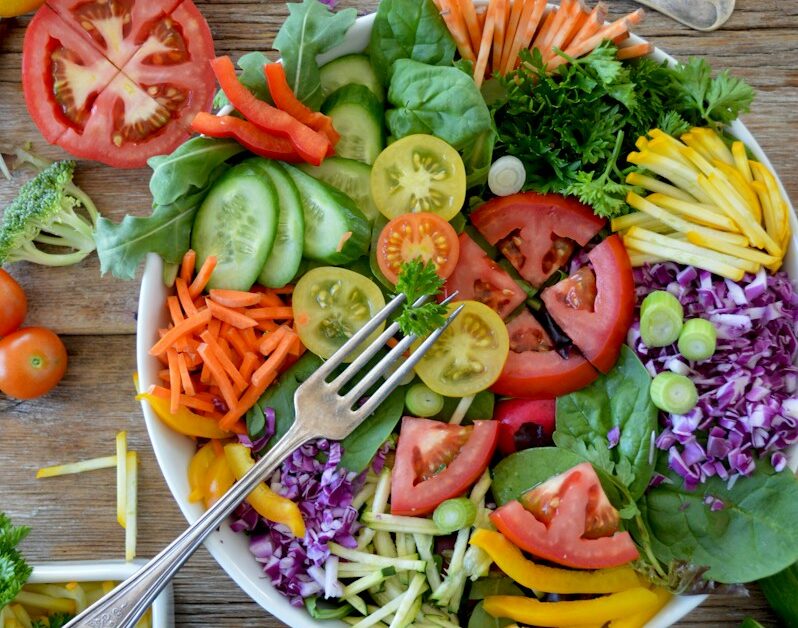Vegetarianism is a dietary choice that has gained significant popularity in recent years. With more people becoming conscious of their health, the environment, and animal welfare, vegetarianism has become a subject of interest for many. However, there are still several questions and misconceptions surrounding this lifestyle. In this article, we will address some frequently asked questions (FAQs) about vegetarianism and provide valuable insights to help readers better understand this dietary choice.
What is vegetarianism?
Vegetarianism is a dietary practice that involves abstaining from the consumption of meat, poultry, and seafood. Vegetarians primarily rely on plant-based foods such as fruits, vegetables, grains, legumes, nuts, and seeds for their nutritional needs. Some vegetarians also include dairy products and eggs in their diet, while others exclude them, following a vegan lifestyle.
Why do people choose to become vegetarians?
There are various reasons why individuals choose to adopt a vegetarian lifestyle. Some of the common motivations include:
- Health benefits: Many studies have shown that a well-planned vegetarian diet can provide numerous health benefits, such as reduced risk of heart disease, high blood pressure, type 2 diabetes, and certain types of cancer.
- Environmental concerns: Livestock farming contributes significantly to greenhouse gas emissions, deforestation, and water pollution. By reducing meat consumption, individuals can help mitigate these environmental issues.
- Animal welfare: Concern for the well-being and ethical treatment of animals is another driving factor for choosing vegetarianism. Many people believe that animals should not be exploited for food and choose to avoid meat consumption for this reason.
- Religious or cultural beliefs: Some religions and cultures promote vegetarianism as a way of life. For example, Buddhism and Jainism advocate for non-violence towards all living beings, including animals.
Is a vegetarian diet nutritionally adequate?
A well-planned vegetarian diet can provide all the necessary nutrients for a healthy lifestyle. However, it is essential to ensure an adequate intake of certain nutrients that are commonly found in animal products. These include:
- Protein: Plant-based protein sources such as legumes, tofu, tempeh, seitan, and quinoa can adequately meet protein requirements.
- Vitamin B12: Since vitamin B12 is primarily found in animal products, vegetarians should consider fortified foods or supplements to meet their B12 needs.
- Iron: Plant-based iron sources like lentils, spinach, and fortified cereals can provide sufficient iron. Consuming vitamin C-rich foods alongside iron-rich foods enhances iron absorption.
- Omega-3 fatty acids: Vegetarians can obtain omega-3 fatty acids from flaxseeds, chia seeds, walnuts, and algae-based supplements.
What are the different types of vegetarians?
Vegetarianism encompasses various dietary choices, each with its own set of guidelines. Some common types of vegetarians include:
- Lacto-ovo vegetarians: This is the most common type of vegetarianism, where individuals exclude meat, poultry, and seafood but include dairy products and eggs in their diet.
- Lacto-vegetarians: Lacto-vegetarians exclude meat, poultry, seafood, and eggs but include dairy products.
- Ovo-vegetarians: Ovo-vegetarians exclude meat, poultry, seafood, and dairy products but include eggs in their diet.
- Vegans: Vegans avoid all animal products, including meat, poultry, seafood, dairy, eggs, and even honey.
Can a vegetarian diet meet the nutritional needs of children and pregnant women?
A well-planned vegetarian diet can adequately meet the nutritional needs of children and pregnant women. However, extra attention should be given to certain nutrients:
- Children: Growing children require sufficient protein, iron, calcium, and vitamin D. Including a variety of plant-based protein sources, fortified foods, and supplements (if necessary) can ensure their nutritional needs are met.
- Pregnant women: Pregnant women need additional nutrients such as iron, folate, and omega-3 fatty acids. A balanced vegetarian diet, along with prenatal supplements, can provide these essential nutrients.
Are there any famous vegetarian athletes or celebrities?
Yes, there are numerous athletes and celebrities who follow a vegetarian or vegan lifestyle. Some notable examples include:
- Serena Williams: The tennis superstar follows a plant-based diet for health reasons.
- Lewis Hamilton: The Formula 1 champion is a vocal advocate for veganism and animal rights.
- Natalie Portman: The Academy Award-winning actress has been a vegetarian since childhood and is now a vegan.
- Novak Djokovic: The world-renowned tennis player credits his success to a gluten-free vegetarian diet.
Vegetarianism is a diverse and well-established dietary choice that offers numerous benefits for individuals and the planet. By understanding the FAQs surrounding vegetarianism, individuals can make informed decisions about their dietary preferences and lead a healthy and sustainable lifestyle.
